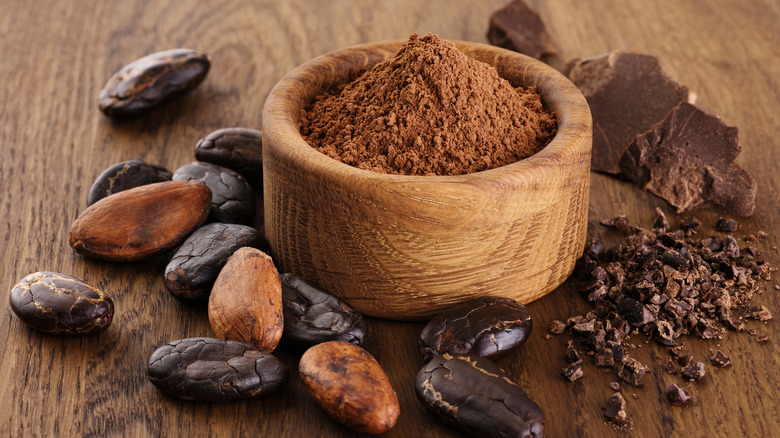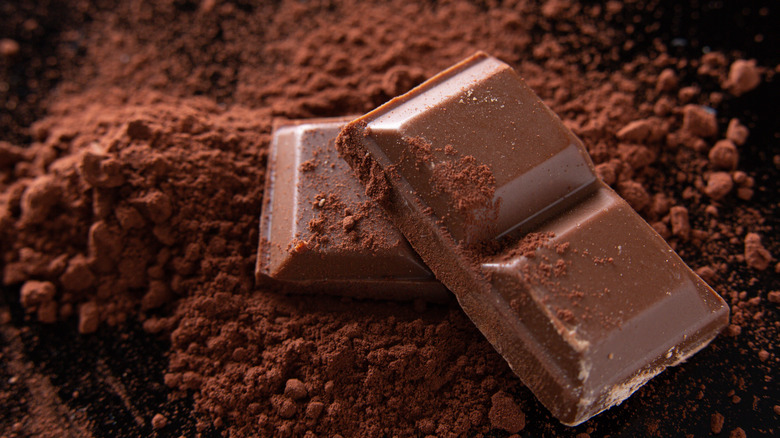Why This New Chocolate Is Intentionally Made Without Cocoa
Chocolate lovers are about to get an opportunity to change their chocolate-loving habits and simultaneously do good for the environment. According to the Chocolate Store, people in the United States eat 2.8 billion pounds of the sweet each year, which amounts to more than 11 pounds per person. However, that delicious treat comes at a cost. According to Fast Company, one-third of cocoa grown in the world comes from the Ivory Coast, but in order to produce these beans and satisfy our sugary cravings, 80% of this region's rain forest has been destroyed. As Fast Company aptly articulates, our collective sweet tooth is hurting the environment. Not to mention, child labor laws are regularly being violated when it comes to this industry, which is reason enough to find an alternative treat to satiate our taste buds.
Luckily, one German company had an idea. Consider it chocolate without the guilt. Food scientist and QOA co-founder Sara Marquart told Fast Company, "We love chocolate, we love cocoa, and we love the product that is produced in a sustainable and just way by small-stake farmers. The only problem is that it's not a scalable approach to make chocolate for the global consumption of chocolate. We're just wanting to offer a solution for mass market chocolate that we can skip the CO2 footprint and the child slavery." Admirable, for sure — but, does it taste good?
It took a little time to get the taste right
If you are getting vibes of Monica from "Friends" baking with "Mockolate," the fictional and "completely synthetic chocolate substitute" that makes Phoebe say it tastes like the devil, we are not too far behind you. Chocolate is not a taste you can mess with. To wit, Sara Marquart of QOA shared that they went through a few iterations to get that lovely chocolate flavor just right, with their early versions scoring as little as 4.9 out of 10. Marquart even revealed to Fast Company that "One of the people commented that she had to brush her teeth three times." But, don't worry, the taste has improved exponentially and Marquart shared chocolate sensory experts at Fraunhofe, a research organization, said they couldn't tell the difference between QOA's ethically and environmentally produced chocolate from the classic chocolate we all know and love.
So, how did they do it? Marquart explained, "We analyze the fingerprint of raw cocoa, fermented cocoa, roasted cocoa, to understand what is making cocoa this unique little bean that has so much flavor?" By doing so, they were able to "extract the building blocks of the flavor and then we reassemble that in a big brewing tank. You can think of it like beer brewing, in a way."
But when will we start seeing QOA chocolate on grocery store shelves? According to People, QOA will be talking to some major chocolate companies in 2022, so stay tuned.

